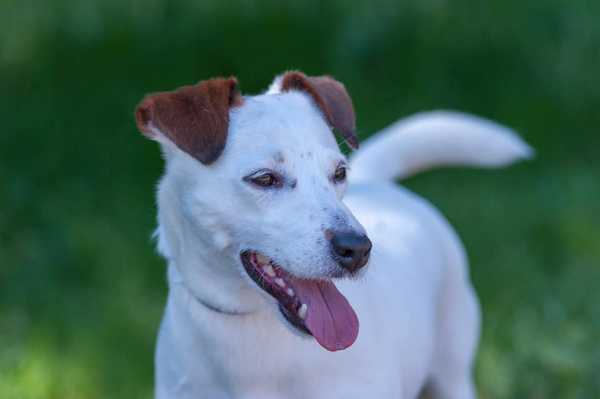Lost or found an animal? The animal pound is there to assist you.
6 Practical Tips for Dog Adoption
You have just adopted a dog from the SPA de Haguenau & Environs, but you now have questions about the comfort and well-being of your pet. Welcoming a new friend is a wonderful adventure, as long as you know about the right practices and show patience and perseverance.
How to be a responsible dog owner? What are the training mistakes to avoid? Here are our 6 tips for dog adoption to help your pet to fit in as well as possible into its new family.

1. The golden rule : Respect its animality
A dog is not a human being. It should be considered as a dog and in no way as a toy. Its masters must behave in a consistent manner and assume what is called the role of “leader of the pack”. However, it is essential to respect the animal’s resting times.
Be careful when children are playing with your dog: you should supervise them. Children do not understand the consequences of their actions and the animal may in turn react unexpectedly.
2. Create a set of rules and know when to punish
Your furry friend should have a clear understanding of the rules. Every member of the family should be consistent on what is allowed or not and permissions should be encouraged.
However, a dog should not be scolded if it has not been caught red-handed. Contrary to popular belief, the dog no longer makes the connection between its action and the punishment after a few seconds. When your dog lies on its back or hunches while it has its ears pinned, do not punish it. It is not a sign that your dog knows it has done something wrong but it wants to show that it recognises and submits to the master’s authority.
3. Define allowed and forbidden areas
Your four-legged friend needs to have a place of its own where it can retreat to rest, sleep, seek refuge and even escape punishment. This place will be an inviolable haven of peace.
However, it should not be tolerated on armchairs, sofas or in the bedroom. Indeed, the “leader of the pack” must not share their resting places. The same applies to the children’s room(s).
4. Make sure to take your dog for walks regularly
Walks are essential for a dog, even if you have a garden. These walks will be a way to stay in close contact with his environment, i.e. with other dogs. So let it sniff poop!
If you choose to take your furry friend by car, you should also be careful not to leave it in a vehicle in the sun under any circumstances. A dog dehydrates in just 20 minutes.
5. Pay attention to your dog's diet and meal times
Your dog should be able to eat in peace and quiet, after the members of your household. It must not be fed while the family is eating: the “leader of the pack” does not share their meal!
To avoid diarrhoea, we recommend that you maintain the same diet for your dog and do not change food frequently. It is also important to make sure not to feed it 2 hours before or after any physical effort because of the risk of gastric torsion, a vital veterinary emergency.
6. Do not treat your dog as a traumatised animal
For this adoption to be a success on both sides, don’t treat it like a traumatised animal. Like us, it may have acquired bad habits that can take a long or short time to disappear.
This is why it is vital for your pet to know what is allowed and what is forbidden on its first day at your home. It will observe you intensely during the first weeks of its new life, in order to understand the rules of the game and to use the weaknesses you have shown in its favour. So just like your dog, take heed of possible mistakes as quickly as possible to correct them.
If it is a puppy, it is strongly advised, as for an adult dog, to set rules as soon as you bring it home. This will allow it to develop a sense of structure, to establish a hierarchy and to become your best friend once adult.
Do not hesitate to contact the shelter if you notice that you are in difficulty. Don’t wait for the situation to worsen. We will advise you as best as we can and we will put you in touch with a dog behaviourist or educator, if we consider their intervention necessary.




